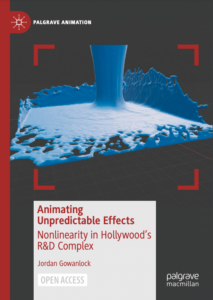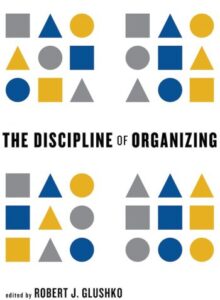Tag: OER
Workshop Reminder — Publish Digital Books & Open Educational Resources with Pressbooks

Date/Time: Tuesday, April 9, 2024, 11:00am–12:30pm
Location: Online. Register via LibCal and you’ll receive the Zoom link for the event.
If you’re looking to self-publish work of any length and want an easy-to-use tool that offers a high degree of customization, allows flexibility with publishing formats (EPUB, PDF), and provides web-hosting options, Pressbooks may be great for you. Pressbooks is often the tool of choice for academics creating digital books, open textbooks, and open educational resources, since you can license your materials for reuse however you desire. Learn why and how to use Pressbooks for publishing your original books or course materials. You’ll leave the workshop with a project already under way.
Curious about how UC Berkeley faculty, students, and staff have used Pressbooks? Check out some of the Berkeley-created digital books and resources below, or browse over 6,400 open access books on the Pressbooks Directory.
Supporting open access book publishing at UC Berkeley: Summer 2021 update
The University of California has taken a multi-faceted approach to supporting open access (OA). For instance, UC’s open access policies ensure that university-affiliated authors can deposit their final, peer-reviewed research articles into eScholarship, our institutional repository, where the articles may be read by anyone for free. The UC has entered into several transformative open access agreements, with the dual goal of enabling universal open access to all UC research and containing the excessively high costs associated with licensing journals. UC also has been supporting new publishing models, such as Berghan Open Anthro’s Subscribe-to-Open.
At the local level, UC Berkeley Library continues to offer the Berkeley Research Impact Initiative (BRII). This program helps UC Berkeley authors defray article processing charges (APCs) that are sometimes required to publish in fully open access journals (note that BRII doesn’t reimburse authors for publishing in “hybrid” journals—that is, subscription journals that simply offer a separate option to pay to make an individual article open access). This past year BRII provided funding for the publication of 83 open access journal articles.
The Office of Scholarly Communication Services is involved in several efforts to help journals change from subscription access to open access, including through Transitioning Society Publication to Open Access (TSPOA), and the Open Access Community Investment Program (OACIP).
Ok, great. But what about books?
The number of open access books continues to grow. As of August 2021, the Directory of Open Access Books indexes 43,793 books. The Open Access Scholarly Publishing Association recently reported that over 1,600 open access books were published by its members in 2020, which represents a growth of over 16% over the previous year.
We know that not all University of California authors are publishing journal articles, and many disciplines—such as arts & humanities and social sciences—focus on the scholarly monograph (in other words, a book) as the preferred mode of publishing. And in contrast with journal articles, books typically cost significantly more to produce. At the systemwide level, the UC is supporting several open access book publishing ventures, including The Open Library of Humanities, which publishes open access scholarship with zero author facing charges, and Knowledge Unlatched, a collection of primarily open access book publishers seeking support from libraries.
So what is UC Berkeley doing to support OA book publishing? Let’s have a look.
Springer open access books partnership

In March 2021, UC Berkeley Library entered into the first-ever institutional open access book agreement with Springer Nature. The partnership provides open access funding to UC Berkeley affiliated authors who have books accepted for publication in Springer, Palgrave, and Apress imprints. This means that these authors can publish their books open access at no direct cost to them. The agreement covers all disciplines published by Springer. It will last for at least three years, and aims to support the publication of four open access books each year. All the books will be published under a Creative Commons Attribution license.
The first book published open access under the UC Berkeley-Springer agreement is Probability in Electrical Engineering and Computer Science, written by Jean Walrand, Professor in the department of Electrical Engineering and Computer Sciences at UC Berkeley. It is available as a CC-BY licensed PDF and EPUB.
Professor Walrand wrote in an email about open access and free digital downloads affect how students and other readers interact with the book.
“Digital resources are more convenient than printed material for searching, hyperlinking, frequent updates, and general access. They enable animations, videos, and interactions with the material, its users, and authors. Moreover, availability of code that complements publications is important in our field. Students are used to reading online. In STEM fields, printed materials are becoming obsolete. However, I believe that carefully edited material is valuable and that good publishers have a useful role to play as editors of digital resources. The open access model is a good step to evolve the role of publishers and libraries. This transition is happening quickly and is challenging.”
BRII support for open access books
We already mentioned how the Berkeley Research Impact Initiative helps UC Berkeley authors publish articles in fully open access journals. BRII funding can also be used to help authors pay book processing charges (up to $10,000/book) so that their monographs can be published open access.
BRII funding has helped several UC Berkeley authors make their books immediately available for free under Creative Commons licenses.
In May 2021 Integrative Biology Professor Brent Mishler published What, if anything, are species? The book is available for anyone to freely read and download under the CC-BY-NC license.
Last year, Jordan Gowanlock (UC Berkeley postdoc in the Department of Film and Media) completed Animating Unpredictable Effects: Nonlinearity in Hollywood’s R&D Complex. The open access book was published by Palgrave Macmillan under a CC-BY license.
Chris Hoofnagle, UC Berkeley Law Professor and Faculty Director of the Berkeley Center for Law & Technology, will publish Law and Policy for the Quantum Age in October 2021 through Cambridge University Press. The open access book was co-written with Simson Garfinkel and will be made available under a CC-BY-NC license. In an email, Professor Hoofnagle wrote about the importance of open access and the financial support he received from BRII:
“Publishing open access is critical to the academic success of this work. A book format was necessary to explain the history and nuances of quantum technologies. Open access gives the work the public availability of an article and the room needed to develop a story that can’t be told in an article-length exposition. We are thankful to BRII for this support.”
Open access at the University of California Press
UC Berkeley Library continues to support open access book publishing via Luminos, the OA arm of the University of California Press. The Library membership with Luminos means that UC Berkeley authors who have books accepted for publication through the UC Press can publish their book open access with a heavily discounted book processing charge. When combined with additional funding support through BRII, a UC Berkeley book author could potentially publish an OA book with the costs being covered fully by the Library. Luminos books are published under Creative Commons licenses with free downloads.
What Is a Family? Answers from Early Modern Japan was published by Luminos in 2019, with financial support from BRII. It was co-written by UC Berkeley Department of History Emerita Professor Mary Elizabeth Berry. What Is a Family? is available as an openly licensed ebook in EPUB, MOBI, and PDF formats.
Pressbooks open book platform
The UC Berkeley Library hosts a version of Pressbooks, an online platform through which the UC Berkeley community can create open access books, open educational resources (OER), and other types of digital scholarship. UC Berkeley authors have published several books via Pressbooks over the last year, including Euripides Scholia, The Discipline of Organizing, The Languages of Berkeley, and Building Legal Literacies for Text Data Mining.
Pressbooks provides for web viewing, as well as ebook downloads in a variety of formats, including PDF and EPUB. Anyone with an @berkeley.edu email can create and publish ebooks on Pressbooks. And, the Office of Scholarly Communication Services continues to offer small grants of up to $5,000 to Berkeley faculty or instructors who wish to create open educational resources or open textbooks that are aimed to be used in instruction.
Investing in the broader OA book publishing community
Back in April we wrote about how the UC Berkeley Library’s Collection Services Council was working to develop local best practices to guide investment in open access products and services. The Library is now working on an implementation plan that embeds the criteria into decision making about whether (and how) to invest in OA resources, memberships, and projects, including OA book publishing initiatives.
We’re starting to kick the tires of the review criteria and process based on requests we’ve already received to invest in new types of open access book support models. For example, the University of Michigan Press is testing a publishing model that asks for upfront investment from the library community in order to support new open access book publishing. Under their Fund to Mission Open Access Monograph Model, if the press meets a specific financial investment goal, they’ll make 50% of their 2022 titles open access. The more investment they receive from the library community, the greater percentage they publish open access from the get go. Libraries are granted term access to their backlist for the duration they are offering support. UC Berkeley Library has evaluated the proposal of the University of Michigan Press Ebook Collection and decided to financially support the initiative for the next three years.
Wrapping up
In this post, we discussed the many ways that the University of California—and specifically UC Berkeley—is supporting scholarly authors to create and share open access books. In addition to providing financial assistance, platforms, and publishing guidance, the Library is committed to promoting the broader OA book publishing ecosystem through strategic investment of our collections budget. We’ll continue to explore a variety of approaches to support the UC Berkeley community (and beyond) who wish to publish books on open access terms.
If you’re interested to learn more about how you can create and publish and open access book, visit our website or send an email to schol-comm@berkeley.edu.





